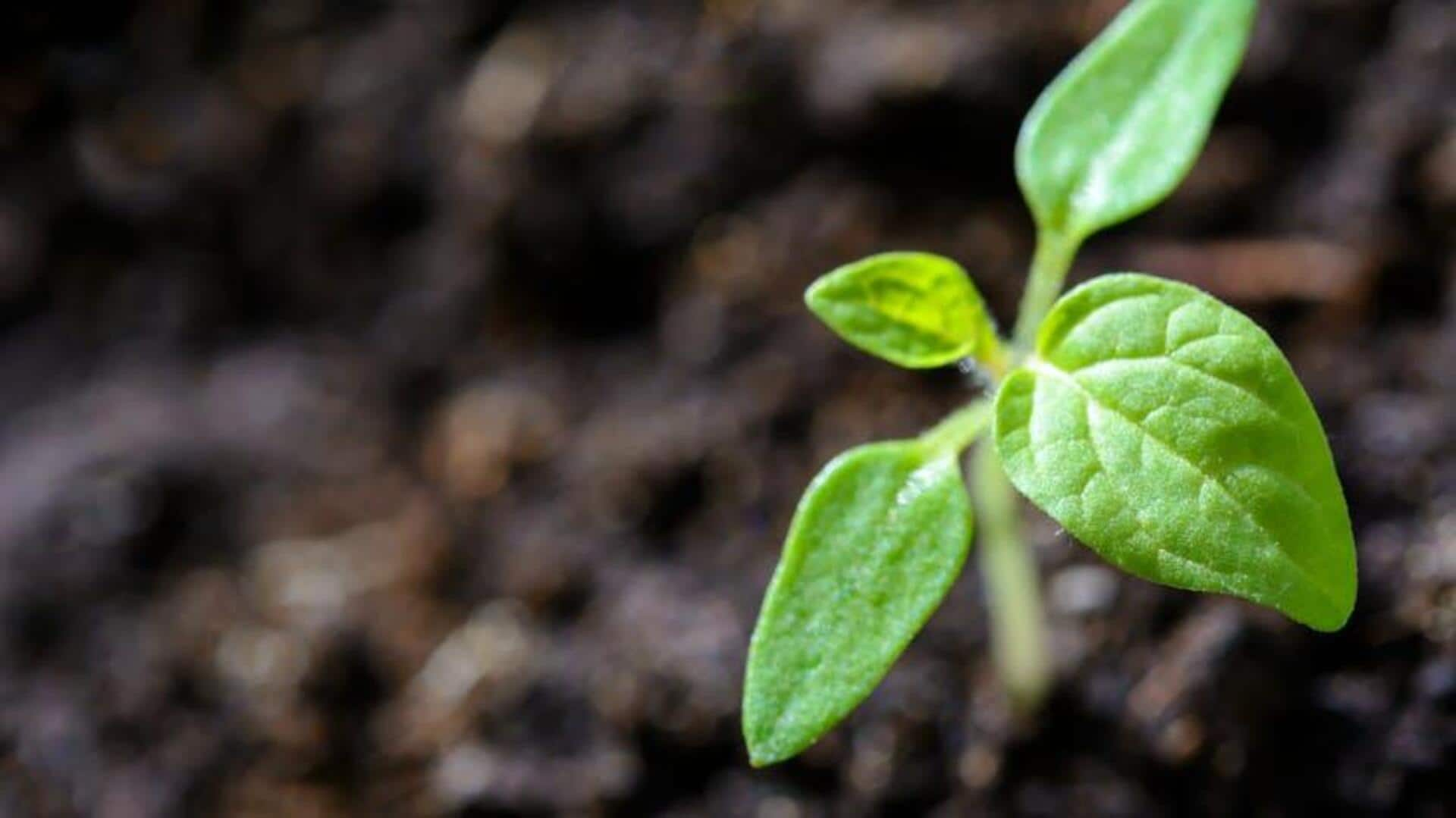
How to grow healthy plants using less water
What's the story
Caring for plants the eco-friendly way isn't just about choosing the right species, it's also about mindful water usage. Using the right mindful water usage can go a long way in conserving resources and keeping the environment sustainable. Here are some practical tips to help you manage your plant care routine efficiently, focusing on reducing water consumption without compromising the health of your plants.
Mulch benefits
Use mulch to retain moisture
Applying mulch around your plants can drastically reduce the amount of water that evaporates from the soil. Organic materials such as wood chips or straw form a protective layer that retains moisture and regulates soil temperature. Not only does this conserve water, but it also prevents the growth of weeds that compete with plants for nutrients and moisture. You can reduce watering frequency and encourage healthier plant growth by using mulch.
Plant selection
Opt for drought-tolerant plants
Choosing drought-tolerant plants is an effective way to conserve water in your garden. These species adapt to survive with minimal watering once established. Native plants are often well-suited to local climates and require less maintenance compared to exotic varieties. Incorporating drought-resistant flora into your garden design reduces reliance on supplemental irrigation, making it easier to maintain an eco-friendly landscape.
Efficient watering
Implement drip irrigation systems
Drip irrigation systems provide water directly to the root zone of every plant, reducing wastage through evaporation or runoff. This way, every drop counts as you provide precise amounts of moisture where it's needed the most. Drip systems can prove particularly beneficial in places with little rainfall or during dry seasons when conserving every bit of water becomes imperative.
Rainwater harvesting
Collect rainwater for irrigation
Harvesting rainwater is an eco-friendly method of ensuring your garden gets natural hydration without depending on municipal supplies. By placing rain barrels beneath downspouts, you can make use of runoff from roofs in storms easily. The collected rainwater can then be used during dry spells as an alternative source of irrigation, minimizing the use of treated tap water, and promoting eco-friendly gardening.
Timing matters
Water plants during cooler hours
Watering plants in the cooler hours of the day, like early morning or late evening, reduces evaporation. This practice is especially important in climate change-affected areas where temperatures peak at midday. By opting for these timings for watering, you ensure water goes further, keeping plants healthy while conserving this precious resource efficiently and sustainably.